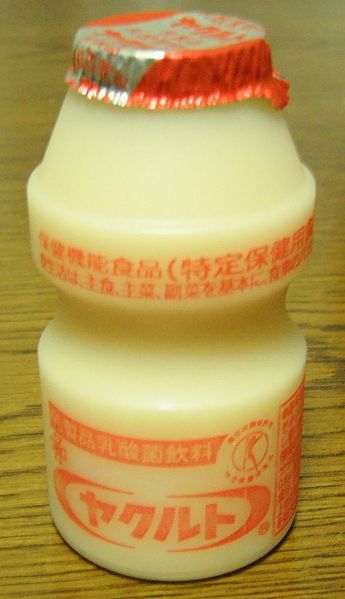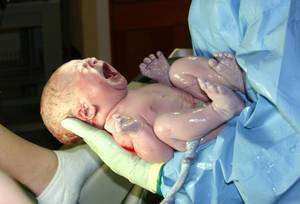Probiotics for Allergies
Interview with
Chris - One of the claims about good bacteria is that they can reduce allergies and things like eczema and asthma. They can also reduce the risk of developing childhood diarrhoea but is it really true? Gareth Morgan's a researcher who's been looking at this question. He's at the university of Swansea. What is all of the thinking behind these claims?
 Gareth - As you have heard earlier in the programme, probiotics are thought of as beneficial bacteria. Unlike the campylobacter that infect your intestine and make you ill these are bacteria which live in your intestine, colonise your intestine but their effects are the opposite. They give you good health. In terms of allergies there have been a number of studies looking at whether or not probiotic treatments causing these colonisations (by giving probiotics by mouth) can actually either prevent you developing an allergy or actually treat them.
Gareth - As you have heard earlier in the programme, probiotics are thought of as beneficial bacteria. Unlike the campylobacter that infect your intestine and make you ill these are bacteria which live in your intestine, colonise your intestine but their effects are the opposite. They give you good health. In terms of allergies there have been a number of studies looking at whether or not probiotic treatments causing these colonisations (by giving probiotics by mouth) can actually either prevent you developing an allergy or actually treat them.
Chris - So in other words if someone's got some kind of disturbed normal flora bacteria living in their intestine you can supplement them with what ought to be there and this can help make them healthier?
Gareth - It's not necessarily that they're disturbed. They may have perfectly normal bowel flora. By changing them or manipulating them in a direction that is beneficial those allergies can either be prevented or treated.
Chris - How do you think that you can prevent allergies just by changing the bacteria you have in your gut? For many people, myself included, the link is not obvious.
Gareth - It could well be that it's the interaction between the immune system of the intestine and then of the body as a whole with these bacteria that are living there. It's certainly the case that we know the intestine has more cells of the immune system in it than the whole of the rest of the body put together. There is continuous activity of the immune system going on in the intestine. Essentially because it's in a place where the body is exposed to the outside world. Food's coming in all the time; all sorts of bacteria; viruses; toxins are all coming into the intestine on a regular basis as we eat. That needs to be regulated and defended against. The immune system is always there: reacting, responding to the bacteria. It's the immune system that decides whether or not we respond to an allergen, something like house dust mites or pollen or another allergen in a way that gives us allergic disease.
Chris - So what experiments have you been doing to find out how you can manipulate these bacteria and how you can demonstrate these health benefits?
Gareth - What we've been doing is conducting a trial on probiotic bacteria given to mothers at the end of the pregnancy and to the newborn babies for the first six months of life. This reproduces a number of trials that have already been carried out around the world. The first one was in Finland about 10 years ago which had shown some of them, not all of them, that giving probiotics in the way that I've described can reduce the incidence of eczema in babies and young children up to the age of 2. Some of the studies have also looked at whether or not you can prevent asthma. That doesn't seem to be something that has been demonstrated yet. This is why we're doing our particular study using different bacteria, different numbers of bacteria to see whether or not we can also prevent eczema by the age of 2 years. We'll also follow these children up and see whether or not asthma is reduced as well.
 Chris - Are you going to give this treatment to all children born by any route or are you tackling just children born by caesarean? In the past there have been some studies that suggest that children born by caesarean don't get this dose of probiotics off their mother as we've heard from the scientists in reading this week. This means they're more prone to getting these problems so who've you got in your study?
Chris - Are you going to give this treatment to all children born by any route or are you tackling just children born by caesarean? In the past there have been some studies that suggest that children born by caesarean don't get this dose of probiotics off their mother as we've heard from the scientists in reading this week. This means they're more prone to getting these problems so who've you got in your study?
Gareth - We've got all children in our study, so those born vaginally and by caesarean section. We've treated all infants whether or not their mothers are breastfeeding them or bottle feeding them because that's another area that's been suggested to influence allergy. Certainly, breastfed babies have different bacteria in their intestines than bottle fed babies do.
Chris - This is presumably because there are different components in breast milk that select out and encourage the growth or certain types of bacteria, which is why you see that effect.
Gareth - Sure, the bacteria themselves are there but also the prebiotics, those are the kind of chemicals that stimulate the probiotics (the beneficial bacteria) that are also in the breast milk.
Chris - How do we know that when you give these bacteria that they actually survive in the intestines? How do we know they get into people and they survive and make a difference?
Gareth - As part of the study. This is something we are particularly interested in. Many of the other studies haven't particularly looked at this. We have obtained stool samples from our babies throughout the first six months of life and afterwards to develop molecular techniques to check whether the probiotics first of all managed to establish a colonisation and then how long that lasted.
Gareth also answered these listener questions:
From Troy, Second Life:
I read somewhere that gut bacteria makes some of our vitamins for us.
Gareth - We get some of our vitamins from our diet or the body makes them themselves. That dietary source is obviously very important. Bacteria are very important in digestion and dealing with food properly. It's entirely possible that bacteria may have an important influence on how well we extract vitamins from our foods.
Chris - Does that include any specific types of vitamins?
Gareth - It could be any of them but B or K vitamins would be the type of things that would be influenced.









Comments
Add a comment